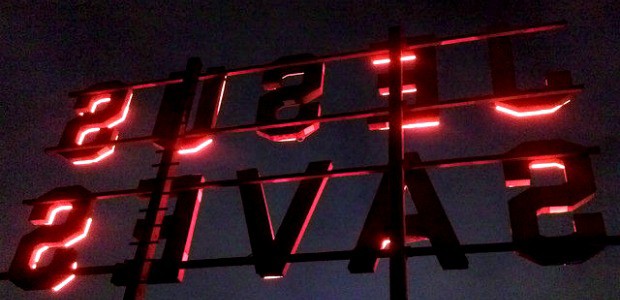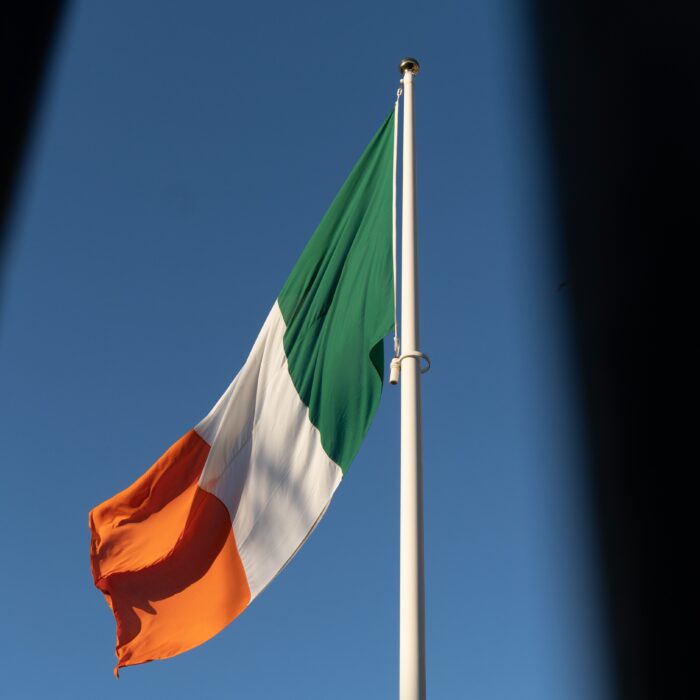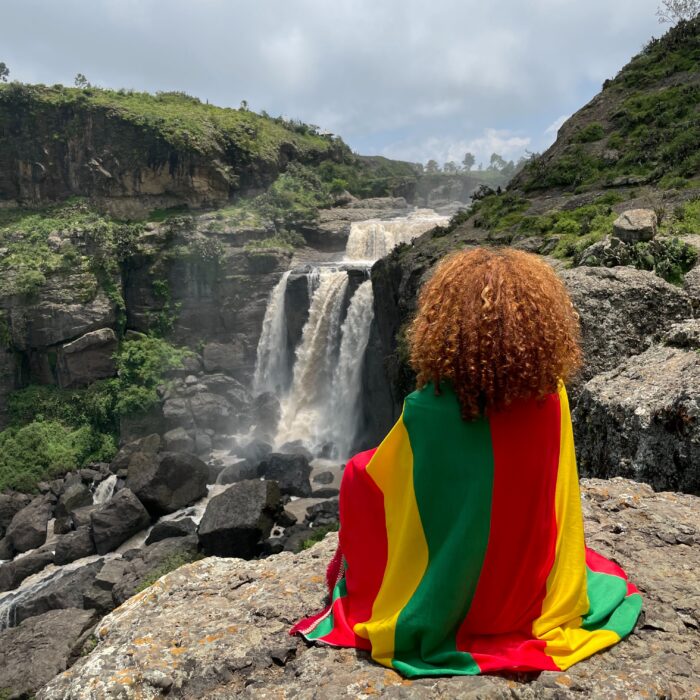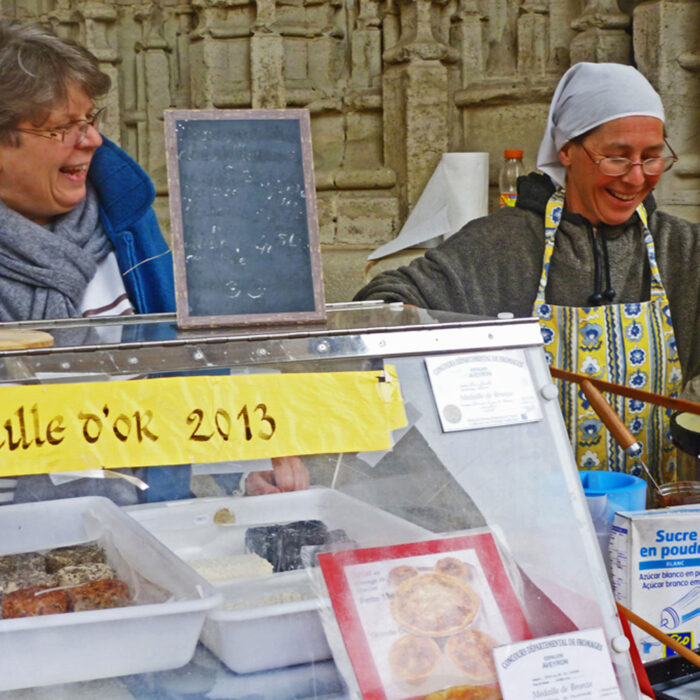You have no items in your cart. Want to get some nice things?
Go shopping
‘The body of Christ.’
You shuffle forward.
‘The body of Christ.’
Eyes glued to the floor.
‘The body of Christ.’
The priest is a waxwork cloaked in white. He is still but for the slow, mechanical movement of his arm. Into each child’s hands he places a thin, beige disc and then draws a loose cross in the air.
‘The body of Christ.’
You’re next. You cross your arms against your chest to make a shape like the letter X.
‘Peace be with you.’
Quick as you dare, you return to your place in the crowd, cross your legs and sit down, cold against the ground.
***
I sat on the steps outside, plush concrete, the looming silhouette of the parish church behind me. It was summer. As the night grew dark it brought with it a calm chill. In the distance the weekend drinkers, mostly young, howled and screeched and their laughter crashed against the sleepy stone buildings and walls. I suppressed a shiver, and next to me on the steps she came and sat. I was drinking, so was she. I don’t remember if we smoked a cigarette or not.
‘Can I ask you a question?’ she asked.
‘Of course.’
‘Do you believe in God?’
***
She lost her brother to cancer when she was eleven years old. He was eighteen. When she told me this, I looked into the face of the woman who would eventually be my lover and I saw her eyes stare through mine and drift back in time. There was nothing I could do or say that would change the injustice. It breathes within her. I held her.
When I told her I had survived my cancer, I experienced for the first time what might be called survivor’s guilt. Walking home that night—drunk, teary, and alone—I thrashed at the trees and kicked pointlessly at the gravel and stones. Cancer is a game of odds; some get lucky, some don’t. I refused to accept that God had intervened to save me, but not her brother. I hated myself for living a life that he could not.
She and her little sister grew up to be evangelical Christians. Her sister, now in her mid-twenties, still is. It’s not for me to claim a connection between their grief and the fervour of their faith, but a belief in a greater power with a higher purpose offers comfort when nothing in the material world possibly can. But I’m probably being reductive. I try to rationalise things; it’s my coping mechanism of choice. During my treatment I found comfort not in scripture, but in numbers and charts; I pored through the research from my medical trial as the chemotherapy snaked through the tube into my chest. I sized up my odds: could I beat the Devil inside me in a game of chance? For me, chemo was a roll of the dice. I got lucky.
***
I went to a Catholic primary school, just because it was the good school in our neighbourhood. My grandparents were religious but my parents weren’t. I wasn’t baptised.
We held Mass in the old gymnasium, and during the Holy Communion I was told to fold my arms across my chest into the shape of an X so the priest knew not to give me the body of Christ. This marked me out as different. Separate, isolated. Communion is the cornerstone of Catholicism, but I could not be part of it. I wondered what it would be like to receive the Lord as the others did—to come to know God. The connection denied to me seemed mysterious, strange, so I would daydream; my mind became buried in childish fantasies and far away places.
In that enormous gym through which the draught whistled all year round, we sat on the floor and we sang. We learnt the words by rote; we sang by habit. Family were invited to join us; my grandmother sat and watched proudly. Teachers and adult helpers—a motley delegation of bouncy youths with red cheeks and grey-haired relics in frumpy woolen jumpers—led the chorus in song.
All I have I give you, Every dream and wish are yours, Mother of Christ, mother of mine, present them to my Lord.
O star of wonder, star of night, Star with royal beauty bright, Westward leading, still proceeding, Guide us to thy perfect light.
At eight years old my friend and I, with skittish innocence, would change the words to the hymns we sang to instead deify idols of our own: musicians and football players. He was an Irish boy from a Catholic family with a cheeky smile. We were too young to understand what those songs meant to the adults around us. Sometimes I saw them dabbing a knuckle of an index finger against the corner of an eye, blotting away a deferential tear. They did this with such quiet decorum, whilst on the ground beneath them we swallowed our giggles.
On the last day of primary school, aged eleven, I sat in our final Mass and partook in the ritual for one last time. I moved through the motions habitually; each step, each breath, internalised through years of practice. Once it was over I no was longer forced to give praise or to sing, but old habits are hard to shift. I’ve since, at times, found myself kneeling by my bed praying to a God I’m not sure I believe in. I’ve prayed when my parents have been ill. I’ve prayed, to my shame, for exam results to go my way. I’ve even casually prayed in the dying moments of a football game. I prayed the night before my cancer diagnosis, and then I prayed again the night after. It was during the darkness of those long months in hospital—robbed of my vitality, dignity and hope—that I gave up praying.
At school they told us that God allowed suffering to test our faith.
‘In moments of pain or sadness,’ they said, ‘you will see his light, you will feel his love, and be closer to him.’ Years later these words would echo in my empty hospital room like a cruel joke.
The folk musician Jeffrey Lewis once sang, ‘God’s just a story someone made up on the go, before they had books and TV shows, I don’t believe in him and I ain’t afraid to say so, God’s just a story someone made up on the go, but it’s hard not to be superstitious despite all you know.’ Perhaps the time will come when I’ll catch myself praying again.
***
A year or so on from the night we sat on the steps in the shadow of the church, she came to me with a suggestion. She wanted to visit an evangelical Sunday service hosted in a theatre in London’s West End. In all the time that we’d been together, she hadn’t once spoken positively about religion. I asked her why she wanted to go.
‘I just need to see it,’ she said.
My stomach tightened. The instinct to protect her sat uncomfortably beside my curiosity to see this world first-hand; to bear witness to the culture she had grown up in, and from which now she felt only icy detachment; to stare into the face of God, and to see if he stared back.
Her struggle with faith and subsequent departure from it was not without pain or acrimony. On the way to the church, my hand on her arm, I felt her tensing up. It was the first time she’d visited a place like this since losing her faith. I’d never been anywhere like it before, not even as a child—the frigid piety of Catholicism stood in stark contrast to what we were about to see.
At the theatre’s entrance we were greeted by wide, earnest smiles and merchandise stalls. Churchgoers milled around by the Royal Shakespeare Company brochures and We Will Rock You posters. A popcorn machine stood dormant.
The audience was in darkness; the stage set up like a concert. Behind the band stood huge screens, grandiose images of nature and space. Beneath it all, a rousing, anthemic soundtrack of bass and strings. Almost everyone stood, but we remained sat, separate from those around us, together in our private isolation. I thought back to each cold and lonely childhood Mass and I reached for her hand. She squeezed back.
Audience members submitted their prayers by text or by email. When the preacher began to pray for them, for the sick and the dying, I at first bristled and then hardened. Anger and disgust rose inside me. He told the congregation of recent triumphs over illness: proof that their prayers had worked. They gave praise to Jesus.
As the service reached its climax, people who before seemed quite placid became frenzied. One man stood alone, four rows in front of us, and convulsed violently as the music reached a crescendo. Some people punched the air. Others wept.
We left around the time the preacher began the collections routine.
St. Thomas Aquinas claimed that, ‘the evils which bear us down here drive us to go to God.’
I wondered how many people in that church were driven there by injustice, pain, or loss. I wondered how many were welcomed by the Lord, had come to know him, had felt his love. I wondered how many had been guided to him, to his perfect light, and in it had found comfort and peace. And I wondered for how many faith was just a matter of habit.
***
Back on those concrete steps, I had tried my best to give her an answer.
‘I think it depends what you mean by God,’ I said. ‘If you mean a being or force that is all-powerful, all-knowing, and all-loving then no, I don’t believe in him. How could I? There is too much suffering, too much pain.’
***
In the hospital in which you lived for four months as an in-patient there was a multi-faith chapel. You must have walked past it fifty times or more, but never once went in. You saw plenty of other people going in and out, expressions ranging from stoic to anguished to lost.
Every visitor to that chapel had one thing in common: hope. People don’t go to church to pray if they’ve given up hope. Sometimes you envied them.
In the endless blackness of those nights on the ward you felt so utterly alone. When the pain tore through you with relentless fire, or when your blood pressure dropped and suddenly there were lights and noise and oxygen masks, you called out for help from someone, from anyone, but found no answer. A long, painful silence. And as the morphine fed on your dreams, there came no light: only darkness and a terrifying dread.
If there is a God, he wasn’t there for you.
***
My uncle died unexpectedly, inexplicably, a few days before his birthday. His death was a shock. I sat with my grandmother that night as she shook and she sobbed.
She had already bought him his birthday card.
In the torture of that moment all her years of faith fell from her. She looked me in the eye and asked, ‘How could there be a God? Why would he let this happen?’
I had no answer.

About Tom Preston
Tom Preston is a teacher, academic, and writer who lives and works in Northamptonshire in the UK. Along with the independent filmmaker Paul Willis, Tom co-founded the online publishing vehicle, Digital or Dead. His first book, 'The Boy in the Mirror', will be published by Valley Press in September 2015. The first chapter is currently available to read at the 'website' link below.




